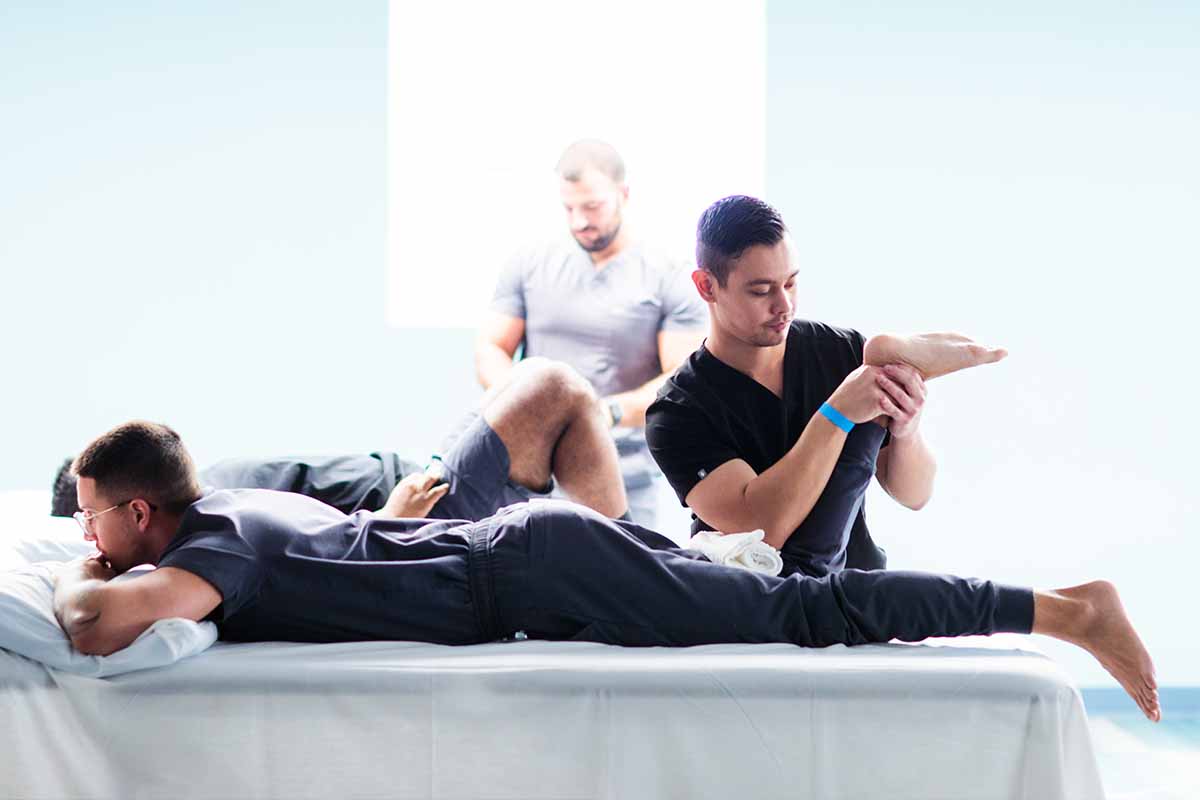
Nurses use the principles of evidence-based practice to make optimal decisions about patient care. When nurses integrate the best available science into their practice, they work from a holistic, patient-centered approach. This post outlines how evidence-based practice is used in nursing, as well as its benefits for patients, nurses, and institutions.
What Is Evidence-Based Practice?
So, what is evidence based practice definition? It is a method by which practitioners across the healthcare professions review and assess the most current, highest-quality research to inform their delivery of care. Although there is no precise standard for what constitutes evidence-based practice in nursing, the approach consists of three main components and five basic steps.
What Are the 3 Components of Evidence-Based Practice?


If you’re a nurse who wants to make decisions according to evidence based medicine practice, use these three components: (APTA, “Components of Evidence-Based Practice.” American Physical Therapy Association, n.d., https://www.apta.org/patient-care/evidence-based-practice-resources/components-of-evidence-based-practice)
- Best external evidence: Evaluate and implement the most current, clinically relevant, and scientifically sound research. (See next section about types of research used.)
- Individual clinical expertise: Draw on your personal experience of what has worked and not worked in your clinical practice.
- Patient values and expectations: Consider and value the preferences of your individual patients.
What Types of Research Are Used in Evidence-Based Practice?
Levels of evidence in healthcare research can be grouped into four categories according to how credible the information is. ((Eastern Illinois University, “Why Is Evidence-Based Practice In Nursing So Important?” Dec. 10, 2018: https://learnonline.eiu.edu/articles/rnbsn/evidence-based-practice-important.aspx)) These four categories, ranging from the most credible to least, include:
- Randomized controlled trials
- Evidence from cohort, case-control, or observational studies
- Expert opinions that are supported by experience, studies, or reports
- Personal experience
You can glean useful information from any of these types of healthcare research, but you should strive to make decisions based on the most credible science available.
What Are the 5 Steps of Evidence-Based Practice?
According to the Cleveland Clinic, there are five steps in the process of implementing evidence based medicine practice. ((Cleveland Clinic, “Evidence-Based Practice: Nursing: What is EBP?” Last updated July 27, 2020: https://my.clevelandclinic.libguides.com/nursingebp)) Also known as the “five A’s of evidence based practice” in health science, these steps include:
- Ask: Formulate answerable clinical questions about a patient, problem, intervention, or outcome.
- Acquire: Search for relevant evidence to answer questions.
- Appraise: Determine whether or not the evidence is high-quality and valuable.
- Apply: Make clinical decisions utilizing the best available evidence.
- Assess: Evaluate the outcome of applying the evidence to the patient’s situation.
Some healthcare organizations choose to add a sixth step, “disseminate,” to the cycle. ((Bernadette Mazurek Melnyk et al., “Evidence-Based Practice: Step by Step: The Seven Steps of Evidence-Based Practice,” The American Journal of Nursing, Jan. 2010: https://journals.lww.com/ajnonline/Fulltext/2010/01000/Evidence_Based_Practice__Step_by_Step__The_Seven.30.aspx)) When you share your own research and evidence with colleagues, this supports the widespread use of evidence-based practice in nursing. You can disseminate knowledge by communicating the information directly to fellow practitioners, publishing in peer-reviewed journals or professional newsletters, or presenting at conferences.
Benefits of Evidence-Based Practice


Evidence-based practices have proven to lead to better patient, provider, and institutional outcomes, such as more consistent care and reduced costs. ((Kathleen Williamson, “Evidence-Based Practice in Nursing Education: The Nuts and Bolts of Integration,” Wolters Kluwer, 2016: http://nursingeducation.lww.com/content/dam/wk-nes/documents/Evidence-Based-Practice.pdf))
Benefits to the field of nursing include:
- Prioritizing the needs of patients. Although evidence based nursing relies on research, it also considers the desires of individual patients. Since one of the main tenets of nursing is focusing on the patient’s needs, evidence based practice helps you continue to improve patient outcomes while weighing the preferences and experiences of each patient.
- Better patient care decisions that also save nurses time. Evidence-based practice can save time, as you can stop engaging in activities that have no known benefit to patients. For example, nurses used to spend up to 20 minutes a day bathing each patient and changing their dressings, until research revealed that some dressings are better left in place longer and that daily baths don’t impact outcomes. (Of course, under some circumstances it may be indicated to perform these practices daily or even more often; it depends on >the individual patient case.)
Evidence-based practice also benefits nursing by keeping practices current and relevant, increasing nurses’ confidence and decision-making skills, and contributing to the science of the profession. ((Maura Hohman, “6 Things You Didn’t Know About the Benefits of Evidence-Based Practice,” Florence Health, June 10, 2019: https://www.florence-health.com/latest-news/registered-nurse/benefits-of-evidence-based-practice/))
Examples of Evidence-Based Practice in Nursing
Through evidence-based practice, nurses have improved the care they deliver to patients. Key examples of evidence-based practice in nursing include:
- Giving oxygen to patients with COPD: Drawing on evidence to understand how to properly give oxygen to patients with chronic obstructive pulmonary disease (COPD).
- Measuring blood pressure noninvasively in children: Using the auscultatory method and then comparing the measurement against data obtained with the oscillometric method as suggested by evidence.
- Using the correct intravenous catheter size: Recognizing the benefits of using smaller-gauge catheters to improve patient comfort.
- Valuing the role of family members: Knowing that the recognition of family involvement may lead to more efficient and effective care, as family members may significantly influence how a patient presents symptoms to healthcare providers.
- Improving infection control practices: Understanding that wearing personal protective clothing and practicing handwashing are key to infection control.
- Recognizing alarm fatigue: By reflecting on current practices, nursing staff can create effective protocols ensuring that nurses who are desensitized to sound due to alarm fatigue are monitoring patients correctly.
When you apply scientific evidence to your nursing practice, it helps you deliver high-quality, safe care—and it improves outcomes for patients, your workplace, and your own career. If you are studying to become a nurse or a nurse practitioner, you can expect to learn how to evaluate research, make informed decisions, and deliver the best care you can. At the University of St. Augustine for Health Sciences, coursework in both of our graduate nursing programs—the Master of Science in Nursing (MSN) and Doctor of Nursing Practice (DNP)—is dedicated to the evidence-based practice process.
The University of St. Augustine for Health Sciences (USAHS) offers a Master of Science in Nursing (MSN) program, a Doctor of Nursing Practice (DNP) program, and Post-Graduate Nursing Certificates designed for working nurses. Our degrees are offered online, with optional on-campus immersions* and an annual interprofessional trip abroad. Role specialties include Family Nurse Practitioner (FNP), Nurse Educator,** and Nurse Executive. The MSN has several options to accelerate your time to degree completion. Complete coursework when and where you want—and earn your advanced nursing degree while keeping your work and life in balance.
*The FNP role specialty includes two required hands-on clinical intensives as part of the curriculum.
**The Nurse Educator role specialty is not available for the DNP program.








